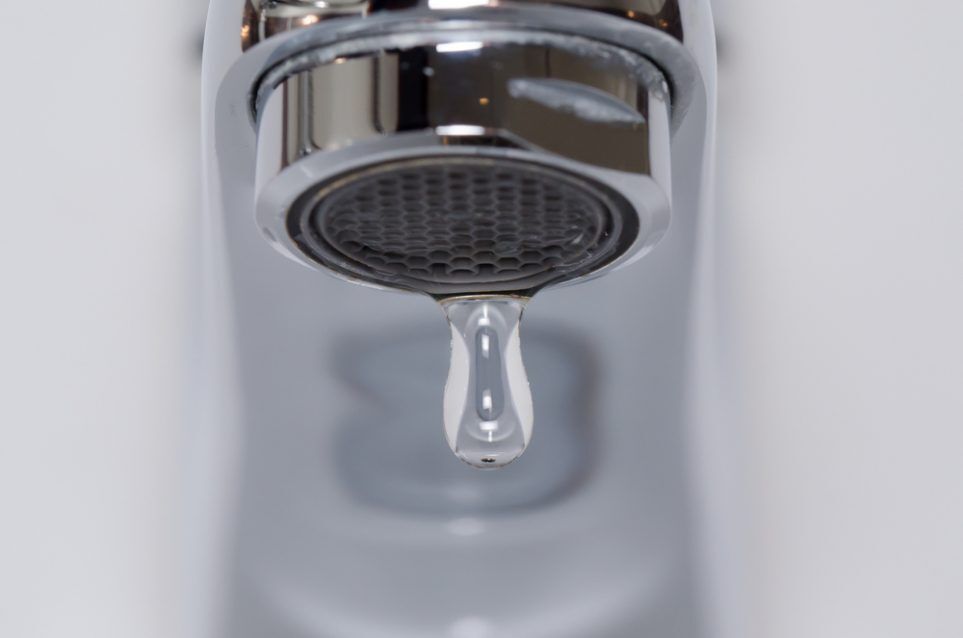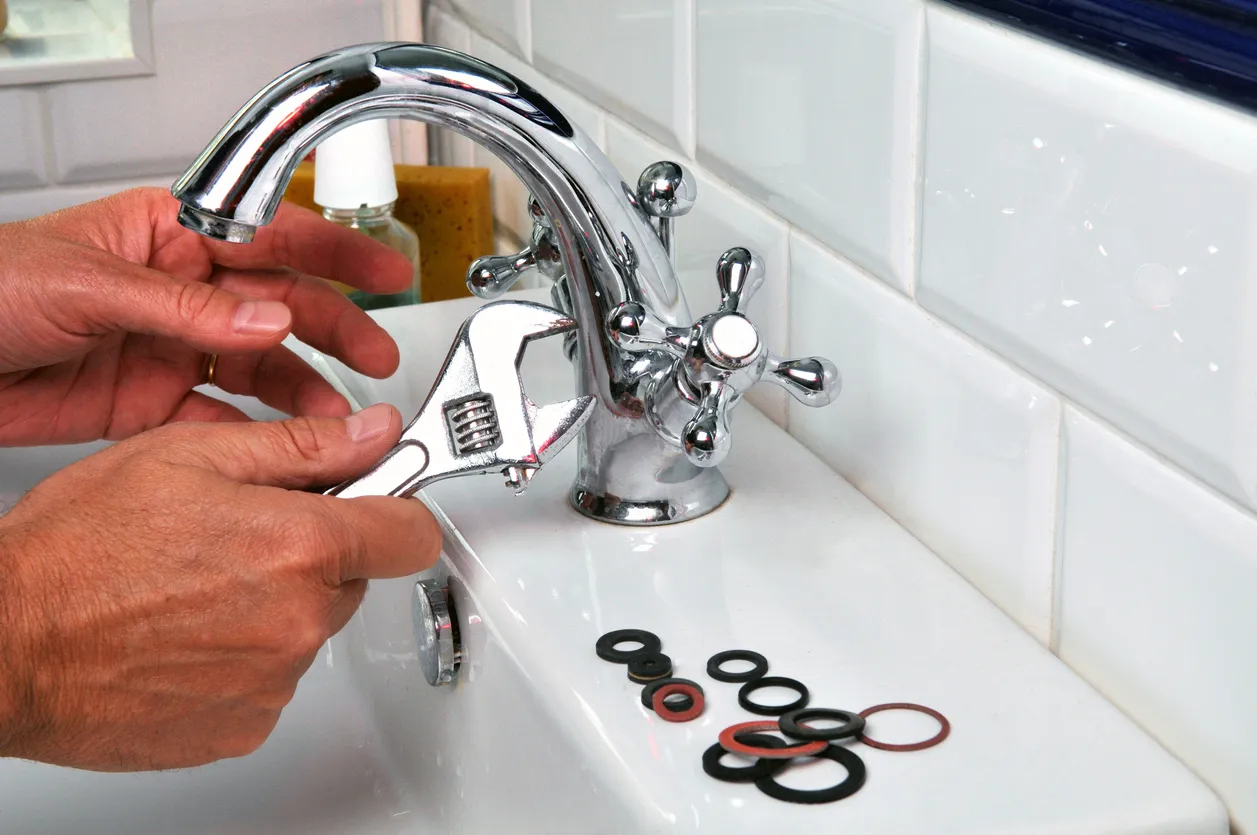My Motives Behind Dealing with a Leaking Faucet
My Motives Behind Dealing with a Leaking Faucet
Blog Article
We have unearthed this great article involving How to Fix a Dripping or Leaky Faucet directly below on the net and reckoned it made good sense to discuss it with you over here.

Leaking taps might look like a minor trouble, however their influence surpasses simply the aggravation of the audio. From drainage to sustaining unneeded financial costs and health risks, disregarding a dripping faucet can lead to numerous effects. In this write-up, we'll explore why it's important to address this common house concern immediately and effectively.
Wastefulness of Water
Ecological Impact
Trickling taps contribute significantly to water waste. According to the Environmental Protection Agency (EPA), a solitary faucet trickling at one drip per secondly can waste greater than 3,000 gallons of water per year. This not just strains water resources yet likewise influences ecosystems and wildlife dependent on them.
Step-by-Step Guide to Fixing a Dripping Tap
Devices Needed
Before attempting to fix a dripping faucet, collect the essential tools, including an adjustable wrench, screwdrivers, replacement components (such as washing machines or cartridges), and plumber's tape.
Common Faucet Issues and Their Solutions
Determine the kind of tap and the specific issue causing the drip. Typical issues consist of damaged washing machines, corroded valve seats, or malfunctioning O-rings. Describe maker directions or on-line tutorials for detailed support on repair services.
Financial Expenses
Boosted Water Expenses
Beyond the environmental influence, trickling taps can pump up water bills significantly. The built up wastage over time converts into higher energy costs, which could have been stayed clear of with prompt repair work.
Possible Property Damages
Furthermore, long term leaking can cause harm to fixtures and surface areas surrounding the tap. Water accumulation can create staining, rust, and even structural concerns if left unattended, leading to additional repair work prices.
Health Worries
Mold And Mildew and Mildew Development
The constant presence of wetness from a trickling faucet creates a suitable setting for mold and mildew growth. These fungi not only jeopardize interior air top quality yet likewise present health and wellness threats, specifically for people with respiratory system problems or allergic reactions.
Waterborne Conditions
Stationary water in leaking taps can end up being a breeding ground for germs and other pathogens, raising the threat of waterborne illness. Pollutants such as Legionella bacteria thrive in stationary water, possibly resulting in serious health problems when ingested or inhaled.
Do it yourself vs. Expert Repair
Pros and Cons of Do It Yourself Repair Work
While some might try to fix a dripping faucet themselves, DIY repairs come with their own set of challenges. Without appropriate knowledge and tools, do it yourself attempts can worsen the issue or cause insufficient repair work, lengthening the trouble.
Benefits of Employing a Specialist Plumber
Hiring a professional plumber makes sure that the underlying source of the dripping faucet is attended to properly. Plumbers possess the competence and tools to detect and fix tap concerns efficiently, saving time and reducing the risk of further damage.
Environmental Responsibility
Specific Payment to Preservation
Taking obligation for taking care of leaking faucets aligns with more comprehensive initiatives toward water conservation and environmental sustainability. Every individual's activities jointly make a considerable impact on maintaining valuable resources.
Lasting Living Practices
By prioritizing prompt fixings and embracing water-saving habits, individuals add to lasting living techniques that profit both existing and future generations.
Safety nets
Normal Maintenance Tips
To stop trickling taps, execute routine maintenance such as cleaning up aerators, checking for leaks, and changing worn-out components promptly. Furthermore, take into consideration installing water-saving tools or updating to much more effective components.
Importance of Prompt Repair Works
Resolving dripping faucets as soon as they're observed protects against more water waste and possible damages, inevitably conserving both water and cash in the future.
Influence On Home Value
Understanding of Well-Maintained Residential Property
Preserving a building in good condition, consisting of attending to maintenance issues like dripping taps, improves its viewed value and value amongst possible purchasers or tenants.
Impact on Resale Value
Residences with well-maintained plumbing components, consisting of taps, command higher resale values in the real estate market. Addressing leaking faucets can add to a positive perception throughout residential or commercial property examinations and settlements.
Verdict
Dealing with a trickling faucet exceeds plain comfort; it's a crucial step toward preserving water, reducing monetary expenses, and guarding health and residential property. Whether via DIY repairs or expert help, acting to deal with trickling taps is a tiny yet impactful means to advertise liable stewardship of sources and add to a much healthier, a lot more lasting future.
How to Fix a Leaky Faucet: Step-by-Step Repair Guide
A leaky faucet may seem like a simple annoyance, but if it's not fixed promptly, that leak could cost hundreds to potentially thousands. From water damage to mold, mildew, and high water bills, even a tiny leak can be catastrophic if left unattended. Damage like this can even affect the overall value of your home, so it's important to take the right approach for leaky faucet repair. You may need the help of a plumber in some cases, but we've got a few tips you can try on how to fix a leaky faucet before calling the pros.
Four Faucet Types
When you're learning how to fix a leaky faucet, the first step is knowing what kind of faucet you're working with! There are four common types.
Cartridge Faucets
Cartridge faucets come in one- or two-handled varieties. In one-handled cartridge faucets, hot and cold water combines in a single cartridge. In the two-handled versions, hot and cold water are controlled separately and mixed in the faucet.
Ball Faucets
Ball faucets have a single lever you push up and down to adjust the pressure and rotate to change the temperature. A slotted metal ball controls the amount of water allowed into the spout.
Compression Washer Faucets
They're the oldest type of faucet, but they're still used in many homes — especially older ones. Compression faucets have two separate handles that, when turned, raise or lower the washer that seals a water valve. This valve stops water from flowing through the faucet when it is turned off.
Disc Faucets
Disc faucets rarely need to be repaired due to their maintenance-free design. The water flow is controlled by two discs — the upper one raises and lowers against a fixed lower disc, creating a watertight seal. If your disc faucet starts leaking, you may need to replace the seals or clean residue buildup from the inlets.
Fixing a Leaky Faucet
Step 1: Turn Off the Water
Whether you're learning how to fix a leaky bathtub faucet or how to fix a leaky kitchen faucet, always turn off the water supply to your working area when you're fixing a leak. The last thing you want is a flood added to your list of things to fix.
Look for the shutoff valves below your sink or around the tub and turn them clockwise to stop the water flow. If your faucet doesn't have shutoff valves, you may need to turn off the water for the whole house. Check to make sure it's off by turning the faucet on. If nothing comes out, you're ready to start the repair.
Step 2: Take Apart the Faucet
How you disassemble your faucet depends on the type of fixture you have. You can use a flathead screwdriver to remove the caps on top of the handle or handles for cartridge and compression faucets. Inside, you should see handle screws. Unscrew these with a screwdriver to remove the handle.
Disc- and ball-style faucets will typically have an inlet screw near the handle, and removing that will reveal the interior of the faucet.
Detach the Valve Stem
For cartridge- and compression-style faucets, you'll see the inner valve stem or cartridge once you remove the faucet handles. If you have a compression faucet, unscrew the brass valve stem. If you have a cartridge faucet, pull out the cartridge. If your cartridge has been in place for a while, it may require some tools or extra force to remove it due to mineral deposits.
Examine and Replace Parts
Once you've removed the parts, check them out to confirm what needs to be replaced. You may see corroded rubber washers, O-rings, stems, or cartridges. On a ball-style faucet, check the seats and springs for damage.
If you need to repair a leaky disc faucet, check the inlet and seals on the lower disc.
Once you determine what parts must be replaced, visit your local hardware store. Bring the damaged parts with you to ensure you can purchase the correct components to replace them.
Clean Valves and Faucet Cavity
If you've removed a stem or cartridge, you may notice mineral buildup in the faucet's threads. Use white vinegar to clean the valve seat by soaking it for a few minutes, then scrub it away with a soft toothbrush and rinse with warm water. You can also clean the interior of the faucet in the same way.
Reassemble the Faucet
Once your faucet is cleaned and the required parts have been replaced, it's time to reassemble it. Put the pieces back together and slowly turn the water supply back on. Doing this slowly is crucial because too much initial water pressure can damage the new hardware you've just installed.
https://homewarranty.firstam.com/blog/how-to-fix-leaky-faucet

Do you like more info about Why It's Important to Fix Leaky Faucets? Leave a review down the page. We'd be happy to find out your reactions about this blog entry. We hope that you visit us again before long. Do you know about somebody who is fascinated by the niche? Be sure promote it. Thanks a lot for your time. Return soon.
Report this page